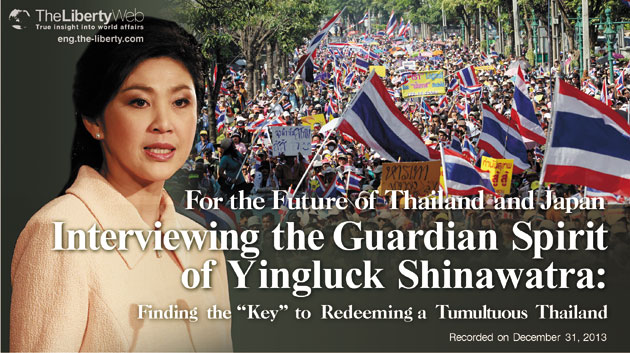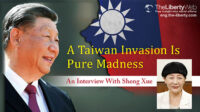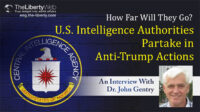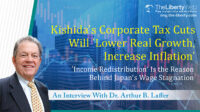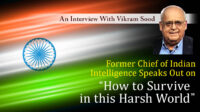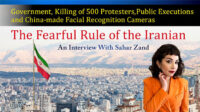For the Future of Thailand and Japan– Interviewing the Guardian Spirit of Yingluck Shinawatra:
Finding the "Key" to Redeeming a Tumultuous Thailand
“The phenomenon of spiritual messages” refers to the channeling of the words of spirits from the spiritual realm. The ability to do so belongs to those who have accessed a high level of enlightenment. It is not the same as the type of “spiritual messages” where one falls into a trance and loses consciousness and the spirit alone talks through a medium. Further, regarding spiritual messages from spirits of other nationalities and languages, it is possible to select the necessary words from within the specific spiritual messenger’s native language, and thus the message is understood in Japanese. For more details-See “What is Ryuho Okawa’s super spiritual power known as “spiritual messages”
Thailand’s political turmoil enters the new year unresolved. In December of 2013, Prime Minister Yingluck dissolved the lower house, and announced that she would heed the will of the people during the general elections in February of 2014. The Democratic Party, the main opposition party, having the odds against them, announced a boycott of the elections. With the number of participants swelling to 250,000 people at the anti-government protest recently held in Bangkok, the future looks very uncertain. Prime Minister Yingluck has been absent from Bangkok more often of late, spending more time in the Northern and Northeastern areas, which represents the electoral regional base of the ruling party, the Pheu Thai Party.
Master Ryuho Okawa of the Happy Science Group called forth the guardian spirit of Prime Minister Yingluck on December 31st, and conducted a public spiritual message in English (See note below).
Note: The video of Master Ryuho Okawa’s “For the Future of Thailand and Japan– Interviewing the Guardian Spirit of Yingluck Shinawatra” was released with a sense of deep urgency on January 1. 2014.
The Guardian Spirit of Prime Minister Yingluck Troubled by the Turmoil in Thailand
The turmoil in Thailand began in the autumn of 2013. The ruling party, Pheu Thai,, to which Prime Minister Yingluck belongs, attempted to pass an “Amnesty Bill” aimed at former Prime Minister Thaksin, the brother of current Prime Minister Yingluck, who was living in exile after being sentenced to prison.
While the amnesty bill was repealed in November of that year, angry crowds of demonstrators led by the main opposition Democratic party,and former Deputy Prime Minister Suthep (a former party member), had not been extinguished.. They demanded political reform by the Yingluck regime through tactics such tactics as occupying the Ministry of Finance, and surrounding the office of the Prime Minister. They are demanding a transfer of power to a “Peoples Council,” replacing elected officials with four hundred experts and representatives from various organizations.
By the end of December, five people had been killed and two hundred wounded in large-scale anti-government demonstrations in protest of the Yingluck regime. Turmoil is deepening in Thailand, the Buddhist country once known as the “Land of Smiles.”
The summoned guardian spirit of Yingluck, sighing deeply spoke, with a historical view of Thailand’s politics in mind recalling the time when regimes brought about by popular will were crushed by anti-government movements led by crowds of demonstrators.
“In Thai culture, people cannot comprehend real democracy. Thai people, historically, have been very obedient to the legitimacy of the king — one king. So, having never experienced another form of government, they find it very difficult to understand democracy.”
Threats From China and Islamic Extremists, and Hope in Japan
The guardian spirit of Yingluck expressed concern over the issue of the expanding influence of China as well.
The Thai government is moving forward with its plans to build four high-speed railways originating in Bangkok. The total cost is estimated at seven hundred eighty billion Baht (about two trillion, five hundred billion yen). Under the Democrative administration of former Prime Minister Abhisit, the Thai government agreed that China could provide support for this expansion. But after the regime change, Prime Minister Yingluck amended policies and decided to implement free-market international bidding. The situation now has Japan at the forefront with China, Korea and France also bidding for contracts in 2014.
When the Chinese Premier Li Keqiang gave a thirty minute speech at the Thai Parliament appealing for Chinese support on the high-speed railway in October of 2013, there was a great round of applause from members of Parliament. The guardian spirit of Yingluck expressed concern over China’s growing economic influence in Thailand.
“In spiritual context, communism is prone to deny religion including Buddhism, the core of Thai culture. This is not good especially if China, an atheistic country, has the intention of invading Thailand and the rest of Asia. It could lead to an unfortunate future and unsettling ramifications for Buddhism so intrinsic to the culture and soul of the area.”
Furthermore, in the southern area of Thailand, close to the Malaysian border, some five thousand five hundred people have been killed since 2004, due to attacks on military bases and innocent civilians, as well as terrorist bombings by armed insurgents of Islamic extremists with a separatist agenda. In the neighboring Buddhist country of Myanmar, Islamic extremists and Buddhists have been clashing, and the situation has degraded to the point where Buddhist monks have been forced to take up arms.
Regarding that situation, so close to Thailand’s borders,, the guardiann spirit of Yingluck voiced the concern that Thailand may also be facing a similar fate, while expressing hope in Japan, along with concern over China,.
“If Japanese political might can be accompanied — if needed and under dire circumstance — by military intervention, for example, an army addressing the needs for the self-defense of a country vulnerable and unequal to a Chinese threat, this would bring great relief to the Thai people. This protection of our country would be very welcome.”
It is said that, “the 21st century is the Asian century”. The developing nations of Southeast Asia are attracting various foreign investments. However, there is also concern over the growing influence of the one-party dictatorship of Communist China. With China, there have been maritime firearm shooting incidents, and territorial disputes in the South China Sea, such as the conflict over Scarborough Reef against the Philippines, or the Paracel Islands against Vietnam. Southeast Asian nations, especially Thailand, suffering from economic and militarily weakness, place much hope in the assistance of major countries such as the U.S. and Japan.
The Buddha Shall Be Reborn
The guardian spirit of Yingluck spoke about the teachings of Theravada (Hinayana) Buddhism, of which 95% of the Thai are followers. Theravada teaches that the Buddha, who entered Nirvana about 2,500 years ago, will never again return to this world. Referencing teaching that says humans are actually souls intended to be reborn again and again, or to “reincarnate,” she had this to say:
“In the traditional Theravada Buddhism, reincarnation has a negative connotation. It is likened to the throwing of dice. Fate appears to be unstable and capricious; in this world it sometimes can belong to the realm of devils.”
However, this teaching is clearly wrong. Since the autumn of 2013, Master Ryuho Okawa, with over ten million followers in over one hundred different countries (and whose goal is to work toward lasting peace and prosperity in the world), has addressed the problem of Thai Buddhism. He states:
“If Thai people misinterpret the concept that ‘the spiritual world is the real world,’ and believe ‘this world is a world of evil’; or,‘it is better not to be reborn into this world,’ they perpetuate this misconception and their thinking remains wrong.”
“If the Buddha found enlightenment, never returning to this world to teach us compassion and the path to true utopia, then who benefits?… It would also mean that ‘he would have nothing to do with this evil world.’ This is simply wrong.”
(Note: The above is excerpted from the sermon, “Conflict Between Religion and Materialism”, November 10, 2013).
This implies that it is the devil who benefits if Buddha never returns to humanity. To believe such a thought is to deny Buddha and bring evil into this world.
Master Ryuho Okawa has also spoken on the Thai tradition where men temporarily enter monasteries as well as widespread social problems including over a million people suffering from AIDS, drug use, prostitution, human trafficking ,and the proliferation of illegal businesses.
“Could the belief exist, that, by experiencing life in a monastery, a disciple believes that he has gained merits for his parents, fulfilled filial duties, and feels as if he’s obtained “a ticket into heaven” (like an indulgence in earlier Christian days). It seems to me that such mandatory abstinence may produce the opposite effect. The other point is that it may lead to feelings of guilt for natural thoughts of the opposite sex that must be suppressed in the monastic life. This can tend to proliferate confusion and may indeed lead to homosexuality”.
This is not meant to be a judgment on homosexualty, but rather an indictment of a system that restricts physical desire at a very vulnerable age that may lead to unintended consequences.
(Note: See the October 23rd, 2013, excerpt from the sermon, “Introduction to ‘Happy Science’ From the Perspective of Comparative Religion -Sexual Taboo, Marriage and the System of Entering a Monastery”.)
Master Ryuho Okawa is “the Second Coming of Buddha”
Master Ryuho Okawa has given over 2,100 sermons since the church’s inception in 1986, and has published over 1,400 books. His published works have been translated into more than 26 languages, with global readership.. Further, since 2010 over 300 spiritual personalities in the “Spiritual Messages Series” (as of year-end 2013) have appeared as “Evidence for the Existence of the Spiritual Realm,” — an astonishing phenomenon. The spiritual message from the guardian spirit of Prime Minister Yingluck is also part of this “Evidence for the Existence of the Spiritual Realm”.
According to investigations into the spiritual realm by Happy Science, the human soul consists of a group of six entities, with one of these, the “spiritual sibling” residing in heaven, acting as the guardian spirit. This guardian spirit is part of one’s own soul. Therefore, “spiritual messages from the guardian spirit” are received by accessing one’s subconscious mind. Therefore, the contents of such messages should be considered to originate in the true subconscious giving rise to the deepest inner thruths.
The ability to summon the words of spiritual beings from this realm as spiritual messages is exclusive to those who have attained a high level of enlightenment. This is one of the six higher knowledges acquired by the Shakyamuni Buddha and correspond to the ability to hear voices from the spiritual realm, called the “divine ear”.
In Southern Buddhism, Shakyamuni is said to have been born around 624 B.C. In India’s Ajanta Cave Temple there is a depiction of the “Maitreya Buddha”, and in the village of Ajanta where there exists a legend passed down through oral tradition that, says that Shakyamuni would be reborn again 2,500 years after his having entered Nirvana. 2,500 years later in 1956, Buddhist countries held ceremonies to commemorate the 2,500th anniversary of Buddha’s death. In that same year, on July 7th, Master Ryuho Okawa, the “second coming of Buddha”, was born.
Master Ryuho Okawa’s teachings foster the idea of a “spiritual revolution,” in which people believe in the existence of the spiritual realm, God and Buddha, and live in accord with the true plan for for humanity.
Not just in Asia, but in various places around the world such as the Middle East and Africa, there are unceasing conflicts. In such a tumultuous world. “the reincarnated Buddha” has been born in Japan, and is preaching to modern people a message attuned to our times that provides us with the necessary teachings to achieve the true life of the soul. When Thailand and the rest of the world begin to understand this truth, there awaits lasting world peace and prosperity.

